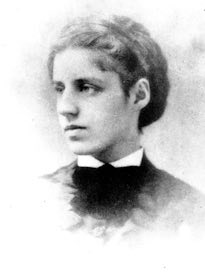“Give me your tired, your poor, your huddled masses yearning to breathe free.” These famous words from The New Colossus were written by Emma Lazarus, one of the first successful Jewish American authors. Although best known for penning this sonnet, Lazarus was also a novelist, playwright, teacher and translator.
Lazarus was an enthusiastic student who immersed herself in many subjects, including the study of literature, languages and the arts. As a teenage author, Lazarus enjoyed the emotional and financial support of her father, a successful sugar merchant.
Lazarus’s growing position as part of New York’s literary elite afforded her the opportunities to interact with and gain inspiration from notable authors like George Eliot and Ralph Waldo Emerson. In fact, Lazarus viewed Emerson as a mentor throughout much of her early career.
Lazarus often used her writings to advocate against anti-Semitism and for the creation of a Jewish homeland. In the 1880s, considered as perhaps her most productive period, Lazarus published Songs of a Semite: The Dance to Death and Other Poems. It was celebrated by many as her best work and consisted of Jewish-themed poems and a lyric drama.
Through her 1882-1883 essays in the Century, Lazarus put forth the notion of a Jewish homeland in Palestine. She was an important forerunner of the Zionist movement, having argued for the creation of a Jewish homeland thirteen years before the term Zionist was even coined.
In 1883, Lazarus wrote The New Colossus for an auction to raise money for the Statue of Liberty’s pedestal. It was later inscribed in bronze beneath the statue and has come to symbolize a universal message of hope and freedom for immigrants coming to America. In 1924, the Statue of Liberty was declared a national monument.

